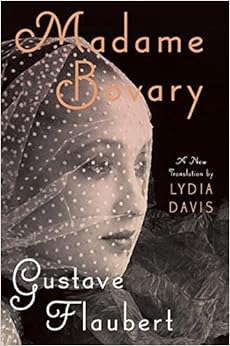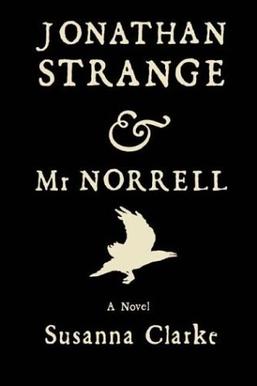Need to read a book with a titular character for Summer Book League Bingo, but drawing a blank? Maybe one of these five will help you fill it in!
The Brief Wondrous Life of Oscar Wao, Junot Diaz (2007)
 This Pulitzer Prize-winning novel has again and again been called one of the best novels of the century so far. Oscar himself is an overweight Dominican nerd, growing up in New Jersey, obsessed with the apocalypse, Akira, and—perhaps most tragically—women. Between games of Dungeons and Dragons and writing an apocalyptic novel, Oscar tries and fails throughout his young life to requite love. The story isn’t just about Oscar, however. Narration shifts to follow his older sister’s brushes with love and infidelity, his mother’s upbringing in the Dominican Republic under Trujillo, his best friend Yunior (his sister’s exboyfriend, a notorious player, and the narrator for most of the novel), and the curse that has been plaguing Oscar’s family for generations.
This Pulitzer Prize-winning novel has again and again been called one of the best novels of the century so far. Oscar himself is an overweight Dominican nerd, growing up in New Jersey, obsessed with the apocalypse, Akira, and—perhaps most tragically—women. Between games of Dungeons and Dragons and writing an apocalyptic novel, Oscar tries and fails throughout his young life to requite love. The story isn’t just about Oscar, however. Narration shifts to follow his older sister’s brushes with love and infidelity, his mother’s upbringing in the Dominican Republic under Trujillo, his best friend Yunior (his sister’s exboyfriend, a notorious player, and the narrator for most of the novel), and the curse that has been plaguing Oscar’s family for generations.
http://pegasus.luc.edu/vwebv/holdingsInfo?bibId=1148854
Madame Bovary, Gustave Flaubert (1856)
 This classic novel focuses on the life of Emma Bovary, the wife of an incompetent doctor. She is a true romantic, and tries to escape her boring and provincial life by living outside her means, having numerous affairs, attempts at religion, and reading literature. Listless and hopeless, Emma is one of the most detestable and relatable characters in literature– Flaubert was once quoted as saying about his titular character, “Emma c’est moi.” This novel is generally acknowledged as his masterpiece.
This classic novel focuses on the life of Emma Bovary, the wife of an incompetent doctor. She is a true romantic, and tries to escape her boring and provincial life by living outside her means, having numerous affairs, attempts at religion, and reading literature. Listless and hopeless, Emma is one of the most detestable and relatable characters in literature– Flaubert was once quoted as saying about his titular character, “Emma c’est moi.” This novel is generally acknowledged as his masterpiece.
http://pegasus.luc.edu/vwebv/holdingsInfo?bibId=594223
Jonathan Strange & Mr Norrell, Susanna Clarke (2004)
 The two titular characters in this novel are magicians in an alternative history of England during the Napoleonic Wars. In the fall of 1806, all of England believes that magic has died out until Mr. Norrell raises a woman from the dead and then begins to aid the government with magic in the war against Napoleon. He takes on a pupil, Jonathan Strange, though the two have conflicting ideas about their theories of magic, which becomes a major conflict in the novel. Clarke also invents an entire history of magic, supplemented by footnotes throughout the book. The novel was also just made into a miniseries by the BBC, so be sure to check it out
The two titular characters in this novel are magicians in an alternative history of England during the Napoleonic Wars. In the fall of 1806, all of England believes that magic has died out until Mr. Norrell raises a woman from the dead and then begins to aid the government with magic in the war against Napoleon. He takes on a pupil, Jonathan Strange, though the two have conflicting ideas about their theories of magic, which becomes a major conflict in the novel. Clarke also invents an entire history of magic, supplemented by footnotes throughout the book. The novel was also just made into a miniseries by the BBC, so be sure to check it out
Life of Pi, Yann Martel (2001)
 This novel was recently made into a movie, but that’s no reason to skip Martel’s simple and beautiful prose. In the novel, Pi first reminisces about his childhood in India and his encounters with Hinduism, Christianity, and Islam. The bulk of the novel, however, focuses on the 227 days during which Pi is trapped on a lifeboat with a Bengal tiger after the ship he and his family were taking to Canada sinks. Pi and the tiger’s coexistence is tenuous, but their survival depends on each other.
This novel was recently made into a movie, but that’s no reason to skip Martel’s simple and beautiful prose. In the novel, Pi first reminisces about his childhood in India and his encounters with Hinduism, Christianity, and Islam. The bulk of the novel, however, focuses on the 227 days during which Pi is trapped on a lifeboat with a Bengal tiger after the ship he and his family were taking to Canada sinks. Pi and the tiger’s coexistence is tenuous, but their survival depends on each other.
http://pegasus.luc.edu/vwebv/holdingsInfo?bibId=1713688
The Immortal Life of Henrietta Lacks, Rebecca Skloot (2010)
 In 1951, cervical cancer which eventually became the first and most commonly used human cell line were taken from Henrietta Lacks, an African-American woman who died months later. They were taken without her knowledge or consent. In the following years, her cells were grown over and over again by scientists to test everything from the effects of radiation to human sensitivity to glue. This nonfiction book delves into the morality of commodifying someone’s cells, the history of experimentation on African Americans, and the birth of bioethics. Even those who don’t often read science writing will find themselves engrossed in this fascinating story.
In 1951, cervical cancer which eventually became the first and most commonly used human cell line were taken from Henrietta Lacks, an African-American woman who died months later. They were taken without her knowledge or consent. In the following years, her cells were grown over and over again by scientists to test everything from the effects of radiation to human sensitivity to glue. This nonfiction book delves into the morality of commodifying someone’s cells, the history of experimentation on African Americans, and the birth of bioethics. Even those who don’t often read science writing will find themselves engrossed in this fascinating story.


